
These twelve natural foods will help cleanse and detox your body!
The kidneys perform a multitude of essential functions within the body from controlling your blood pressure to keeping your bones strong and healthy. Located under the rib cage, your kidneys are responsible for removing waste from the body.
By eating plenty of fruit and vegetables and staying adequately hydrated, your kidneys can be self-cleansing. The right diet and regular exercise can help you avoid kidney problems in the future.
12 Foods To Naturally Cleanse & Detox Your Kidneys
1. Red Peppers
These peppers are low in potassium which can be hard on those who have kidney disease. They also contain a good amount of vitamin C, folate, vitamin B6, and fiber. Vitamin C is an antioxidant and plays roles throughout the body in energy production, blood flow, and metabolism.
Folate and B6 contribute to the formation of red blood cells. Red bell peppers also contain lycopene, a powerful antioxidant that keeps kidneys healthy and prevents renal failure.
2. Cabbage
Cabbage is rich in fiber, folate, B6, vitamin C, and vitamin K. The fiber in cabbage and other leafy greens slow the absorption of nutrients. This gives the liver and kidneys time to deal with the influx into the bloodstream. Fiber keeps blood sugar from spiking, one of the biggest reasons for kidney damage, and it also helps pull toxins from the digestive tract.
Vitamin K is important in healthy blood clotting. Cabbage also contains many phytonutrients that act as antioxidants and anti-inflammatories.
3. Cauliflower and Broccoli
These florets are rich in vitamin C and folate. Cauliflower is full of fiber and rich in anti-inflammatory compounds. Cruciferous vegetables are very good for you when kidneys are healthy or only sluggish. They should be avoided if your kidneys are really struggling or you have gout.
4. Leafy Greens
Greens are rich in vitamin C, folate, fiber, vitamin K, and many other phytonutrients that reduce stress on the kidneys, reduce blood pressure, balance blood sugar, and combat inflammation.
Consider adding healthy greens to your diet such as mustard greens, dandelion leaves, and turnip greens. Dandelion especially increases urine production, cleaning out the kidneys and reducing blood pressure.
5. Garlic
Garlic, onions, shallots, chives, and leeks all contain allicin. Allicin is an organic sulfur compound that has some mighty anti-inflammatory properties. It also fights infection, has beneficial effects on blood pressure and can act as an antioxidant.
6. Mushrooms
Mushrooms offer a host of benefits for kidney health, making them a valuable addition to any diet. These fungi are naturally low in sodium and high in potassium, essential for maintaining a healthy balance in blood pressure and reducing the risk of kidney damage. Mushrooms are rich in antioxidants like ergothioneine and selenium, which combat oxidative stress, a contributing factor to kidney diseases. Their anti-inflammatory properties aid in reducing kidney inflammation and promoting overall renal function.
7. Asparagus
The asparagus stalk is an excellent source of fiber. The phytonutrients in asparagus lowers blood pressure and has a cleansing effect on the kidneys and bladder as they increase urine production and break up uric acid.
This is for prevention. Those who already suffer from kidney disease should be careful with asparagus as it is also rich in potassium and phosphorus.
Start your kidney detox with this fabulous asparagus soup!
8. Apples
Apples are an excellent source of fiber. The fiber in apples is exceptional at binding to and removing toxins from the digestive tract before the body can absorb them, lessening the load on the kidneys. Apples also reduce inflammation and cholesterol.
9. Berries
Berries are low-calorie sweets that are also packed with some potent antioxidants and phytonutrients that help prevent damage to kidney cells and nephrons. They reduce inflammation and contain vitamin C, fiber, folate, and manganese.
Some, like cranberry, are known to have a soothing effect on the urinary system and prevent infections. Blueberries, raspberries, strawberries, and cherries all help protect and cleanse the kidneys. Raspberries also contain ellagic acid, an antioxidant that has been shown to prevent kidney disease and some cancers.
10. Olive Oil
The healthy essential fatty acids in olive oil, nuts, seeds, and avocado reduce inflammation, lower cholesterol, and can ease the pain of kidney stones. Other oils with healthy fatty acids to try include sacha inchi or moringa oil.
Olive oil is a great source of healthy fatty acids while also being phosphorus-free. The majority of fat in olive oil is a monounsaturated fat called oleic acid. Oleic acid is known for having potent anti-inflammatory properties.
11. Ginger
This spice has been used as a digestive aid for hundreds of years. Ginger has been shown to protect the kidneys from damage caused by diabetes, alcohol, and dehydration.
Related: Ginger: A Spice for Health!
When combined with thyme, Ginger may offer even more protection. Thyme has been found to lower blood pressure and cholesterol. This is beneficial to the kidneys as high blood pressure can have a significant impact on the organs.
12. Turmeric
Turmeric is related to ginger and can also protect the kidneys from damage though it isn’t recommended for those who already have kidney disease due to its potassium content.
Related: 11 Health Benefits of Curcumin Turmeric’s Secret Weapon
Combine it with black pepper to get the most out of this spice. The active ingredient in black pepper is called piperine. When you combine piperine with curcumin, the active compound in turmeric, it makes for a powerful concoction. Both compounds have potent anti-inflammatory properties and can help to aid in digestion too.
3 Foods to Avoid for Kidney Health
Just as some foods support kidney health, detox, and cleansing, other foods can be detrimental to your kidneys. Avoiding or at least limiting certain foods in your diet can help to decrease the build-up of waste in your body, boost kidney function and prevent damage in the future.
1. Dark-Colored Colas
Dark-colored colas contain sugar, empty calories, and additives that contain phosphorus. Proper functioning kidneys can remove phosphorus from the body. When you have chronic kidney disease, your kidneys struggle to remove excess phosphorus. This can result in damage to the body.
2. Canned Foods
Canned food like soups and vegetables are often picked up due to their low price and convenience. However, many canned foods can contain high levels of salt. The salt is added to preserve the food and provides a very long shelf life.
3. Processed Meats
Processed meats are any meats that have been dried, salted, canned, or cured. These types of meats have long been associated with chronic disease and generally contain a fair amount of unhealthy preservatives. Processed meats are high in protein and salt which require your kidneys to work harder.
Bad diet choices and habits like smoking and eating a lot of processed foods force your kidneys to work harder. Over time, high blood pressure and diabetes are two of the main causes of kidney disease. By incorporating these 12 foods into your diet, you can support kidney health, encourage self-cleansing and prevent kidney problems from developing in the future.
Why are the Kidneys so Important?
The kidneys are two small bean-like organs around 6cm wide and 12cm long. They consist of two layers. The outer layer is called the cortex and the inner layer is called the medulla. The majority of people have two kidneys. You can find them at the back of the abdomen on both sides of the spine.
The kidneys serve a multitude of essential functions within the body
The kidneys clean waste and excess water from the blood, produce urine and help control blood pressure by regulating electrolytes. The kidneys also adjust pH, filter proteins and remove toxins that have been packaged for removal by the liver.
Another role of the kidneys is to produce a variety of hormones. The two main hormones the kidneys secrete are vitamin D and erythropoietin. Vitamin D is essential for calcium absorption, maintenance of healthy bones, and regulation of the immune system. Erythropoietin activates the production of red blood cells to maintain healthy oxygen levels in the body.
Your kidneys are constantly at work. Every day, the kidneys process over two hundred quarts of blood and sift out over two quarts of waste products and water. Healthy kidneys filter through approximately half a cup of blood a minute to remove waste, excess water and produce urine. The urine then flows from your kidneys to your bladder. Your bladder, kidneys, and ureters are all a part of your urinary tract.
The waste removal process the kidneys perform is vital, without it there would be a build-up of toxins in the bloodstream and lymph fluid. This could potentially poison the body and lead to tissue damage. The toxins, excess water, uncontrolled pH, blood pressure, and electrolytes can also put enormous strain on the blood vessels and heart.
Keeping Your Kidneys Healthy
More than 37 million American adults are living with kidney disease and most don’t even know it. There are different types of kidney disease but the most common is chronic kidney disease (CVD). This is a long-term condition that doesn’t improve over time. It’s usually caused by high blood pressure. Other kidney problems include kidney stones, urinary tract infections, and glomerulonephritis, an inflammation of the glomeruli in the kidney.
Many people do not experience symptoms of kidney disease until the late stages when the kidneys are failing or there’s a lot of protein in the urine.
Symptoms of kidney disease can include the following:
- Dry, itchy skin
- Frequent need to urinate
- Tired/ low energy
- Foamy urine
- Blood in urine
- Swollen feet and ankles
Two of the leading contributors to kidney disease are diabetes and high blood pressure. Both of these cause damage to the nephrons, the tiny filtering units in the kidneys. Each of your kidneys is made up of about half a million of these filtering nephrons. They work by returning much-needed substances back to the blood and removing waste.
Adopting a lifestyle that limits the development of diabetes and high blood pressure will dramatically reduce your risks of kidney disease, kidney stones, or renal failure.
There are also ways to develop these health issues which are out of your control. Some autoimmune diseases, genetic disorders, infections, poisoning, and physical blows to the kidneys can result in renal failure.
If you want to reduce your risk of developing kidney problems and support optimal kidney health, start by maintaining a healthy weight. Obesity raises the chances of developing diabetes and high blood pressure.
Other ways to reduce your risk of developing kidney problems include:
- Exercise is important in keeping blood vessels, the heart, and cholesterol under control.
- Don’t smoke. Smoking dumps toxins into the bloodstream that damage the kidneys and other organs.
- Stay hydrated. A lack of water is one of the leading causes of kidney stones.
- Avoid coffee and colas that can dehydrate you and contain too much phosphorus.
- Avoid highly processed and refined foods. These contain large amounts of saturated fats, trans fats, free radicals, sugar, and sodium that increase the already heavy load on your kidneys. they can also contribute to obesity, heart disease, and high blood pressure.
Remember to keep an eye on your protein consumption. Too much protein can also damage the kidneys. Excessive protein consumption floods the blood with toxic ketones. The kidneys go into overdrive to remove these toxins, increasing the stress on these organs. The kidneys use up a lot of water in the process of flushing these dangerous ketones away. Eating too much meat also means getting a lot of cholesterol and unnecessary calories. Opt instead for a clean, plant-based protein like Sunwarrior's Warrior Blend + Greens
Plant-Based Diet and Kidney Health
A plant-based diet with plenty of whole foods, fruits and vegetables is a great way to maintain a healthy weight and kidneys. Here are some of the benefits of a plant-based diet for your kidneys:
- Deliver smaller, manageable amounts of protein
- Provide healthy fats that are essential to heart and kidney health
- Carbohydrates paired with fiber encourages slow, steady absorption
- Much less sodium
- Contain antioxidants that help prevent damage, water for proper hydration, and valuable vitamins and minerals.
Those who already have some form of kidney disease should especially avoid red meat. In the Tehran Lipid and Glucose Study with 4,881 participants, investigators found that chronic kidney disease is linked with high consumption of red meat.
The findings from the Tehran and Lip Glucose study support that of another study called the ARIC study. The ARIC study showed that the highest vs the lowest amount of red and processed meat is linked to a 23% higher risk of developing chronic kidney disease.
As well as cutting out red meat, things like sodium, potassium, and phosphorus can also harm the kidneys. This is because the kidneys can no longer fully regulate these electrolytes in the bloodstream.
Up Next:
• Clean Out Your Body for a Healthy Liver
• Maintaining A-1 Kidney Health
• 11 Simple Tips To Be Lazy And Healthy
• Fad Diets Come and Go: This Is The Most Healthy Diet According To Science
Editor’s Note: This post was originally published on May 11, 2016 and has been updated for quality and relevancy.
Charlie Pulsipher
Natalie Bohin























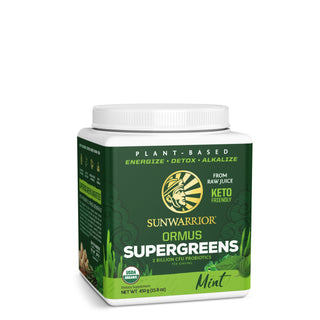
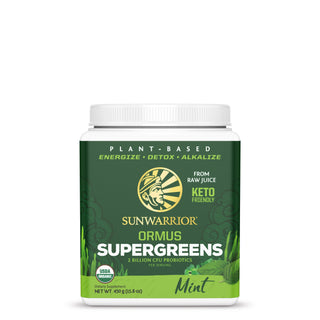
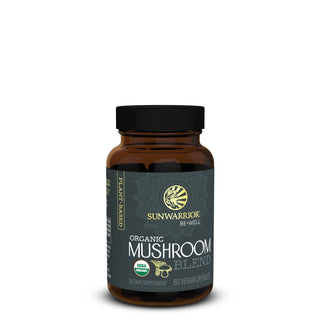
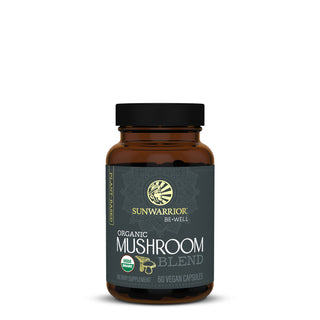
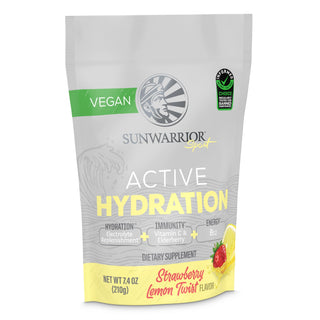

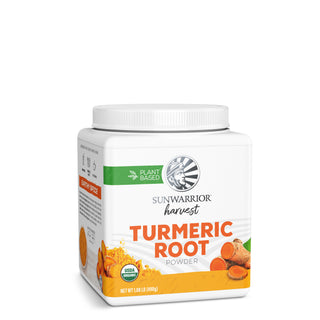
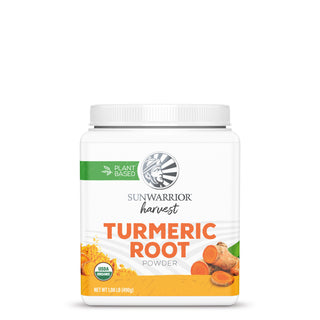
COMMENTS
adrophy chavengwa
thank you so much 💖